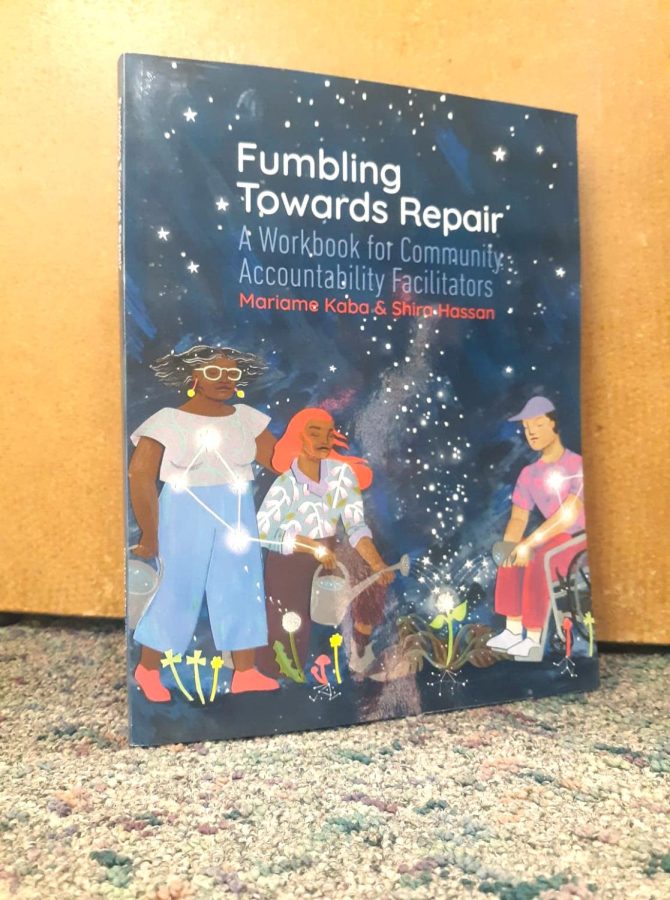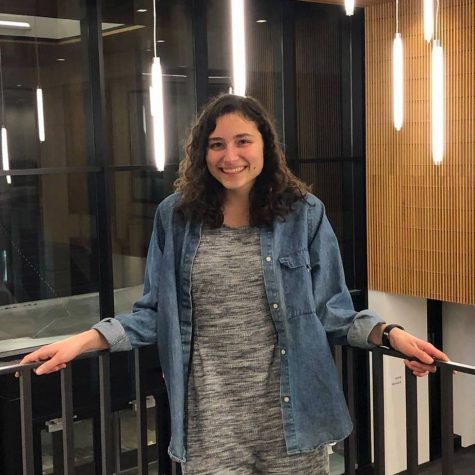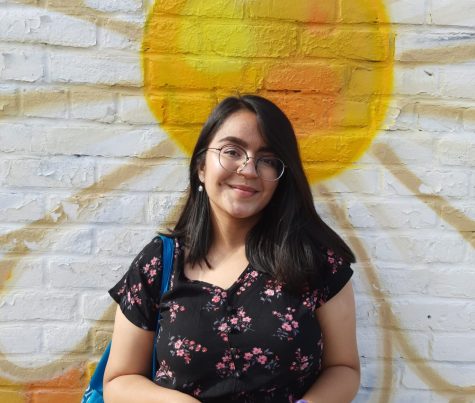Mariame Kaba talks abolition feminism and reimagining justice
March 31, 2022
Please be advised: This article contains discussion of sexual violence, harrasment and the Title IX office.
Abolitionist organizer, author and educator Mariame Kaba joined the Macalester community virtually for a talk on abolition feminism last Thursday, March 24. The Department of Women’s, Gender and Sexuality Studies and the Department of Multicultural Life hosted the talk, with Visiting Assistant Professor of women’s, gender and sexuality studies Myrl Beam moderating.
In her talk, formally titled “Abolition Feminism is a Practice of Freedom”, Kaba dove into a comprehensive overview of her work on abolition feminism. Abolition feminism, she said, is “a liberatory vision of a world free from all forms of violence, including those produced by carceral logics and systems of surveillance, policing, punishment, colonialism and global militarism.”
Kaba introduced the audience to the topic with a story. She recounted her work with Tiawanda Moore, a Chicago woman who called the police to report domestic violence and was then assaulted by the officer who responded. The Chicago Police Department discouraged her from filing a complaint after the assault, and Moore was arrested for eavesdropping because she recorded audio from their conversation on her cell phone.
Kaba used Moore’s story as a doorway into her talk on abolition feminism. She highlighted sexual violence committed within the prison and policing systems, like the assault that Moore faced by a police officer.
“At least 60 percent of prison rapes are committed by prison guards and staff,” Kaba said.
As a Black woman facing state violence, Moore’s story reflects the intersection of racism and gendered violence that Kaba focuses on as well.
“It stands to reason that we have to abolish criminalization if we want to end racialized gender violence,” Kaba said.
She used this example to reveal loopholes in the “funded,” non-abolitionist feminist movement. In Moore’s case, she said, many organizations working against domestic and gender violence declined to help Kaba’s organizing efforts to get the charges against Moore dropped. She noted how such organizations have historically refused to support survivors of carceral sexual assault, especially when the survivors are Black.
Kaba noted that abolition feminism is not irrationally optimistic; it imagines a future in which systems of accountability are created without violence.
“It is possible to build systems and structures that address harm in a manner that facilitates healing and transformation rather than punishment,” she said.
Kaba mentioned that practices of the carceral system beyond sexual assault are widely accepted but still violate people’s privacy and consent, like cavity searches, strip searches and stop and frisks.
“All of these are gender-based violence, but that’s usually not considered violence when it’s done by the state,” Kaba said.
Highlighting the realities of carcerality and gender-based violence, Kaba presented her core idea: abolition must be feminist and feminism must be abolitionist.
Kaba situated abolition feminism in the broader context of transformative justice, a movement to address harm outside the prison system. Transformative justice, she noted, has informed the work of communities across the U.S. in addressing cases of domestic violence, sexual assault and child sexual abuse through community-based and collective responses.
She defined it as “any way of dealing with violence, abuse and harm that doesn’t primarily rely on the state, cops, court, confinement and that doesn’t throw survivors under the bus.” Kaba highlighted its roots in marginalized communities by noting that it was created by Black, brown, queer, trans, working-class, poor, sex-working, immigrant and other such folks.
“Relying on the system has not been an accessible or reliable option,” Kaba said.
A Q&A section followed Kaba’s talk. Bringing the issue home to Macalester, one student asked a question about Title IX and how higher education might envision alternatives to this system rooted in law and created by the state.
“What are your thoughts on Title IX as an extension of the carceral state, and what would moving away from Title IX to a more transformative justice approach look like?” the student asked.
Kaba agreed that Title IX offices used at most schools to respond to reports of sexual violence and discrimination can be improved.
“I think that universities ought to take seriously what people who survived harm want and say they need,” Kaba said. “We need a whole bunch of other options. So I think people shouldn’t get so stuck on just one thing replacing one thing. Make a hundred things.”
Kaba’s introduction to abolition feminism stressed this point, over anything else: that no single response to violence can be enough. Kaba envisions a future with a multitude of avenues to address violence, all rooted in community and care.
“Abolition is always a process, and we’re going to be constantly learning new things,” Kaba said. “We’re gonna have to keep pushing until we find a way to address, dismantle the carceral systems.”
Kaba noted that having a multitude of options means that there are a multitude of ways to work towards this kind of abolitionist future.
“You are not going to find a magic or silver bullet,” Kaba said. “It doesn’t exist. That should give you comfort rather than depression.”
Given the varied ways she discussed for people to build abolitionist feminist communities, Kaba said there is work for everyone to do. She left the audience with a question of what their contributions could be: “How will you practice freedom tomorrow?”














